 ICRH Global Newsletter ICRH Global Newsletter 30th of March, 2016 |
International network on SRHR policy ICRH Belgium is establishing, together with more than 15 partner institutions, an international network around policy research and advise.
The network includes partners from Europe (Belgium, Scotland, UK, Norway, Sweden), North (USA) and South America (Ecuador), Africa (Mozambique and Kenya), Asia (China) and Australia. All partners are closely linked with national and international policy-makers, six of them are Collaborating Centres of the World Health Organization.
There will be frequent communication and regular meetings, resulting in policy briefs, joint research proposals, publications and PhDs, staff exchanges and capacity building initiatives.
The network will receive funding from Ghent University from 2016 until 2020 (five years). ICRH professor Olivier Degomme will be the coordinator of the network. More information: Olivier.degomme@ugent.be |
| PROJECTS |
WHO Multi-Country Survey on Abortion ICRH-Mozambique will partner with AMOG (Mozambique Association of Obstetricians & Gynecologists) to conduct a new WHO multi-country survey in Mozambique.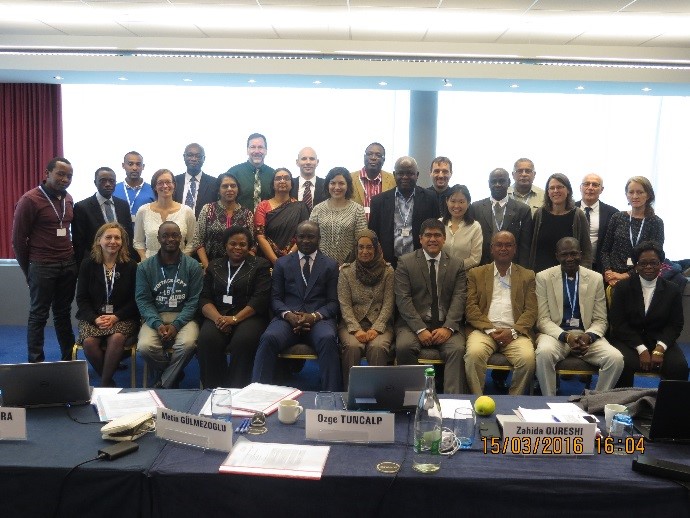
This MCS will build on findings and experiences of the 2010 MCS on Maternal and Newborn Health, to better capture the burden, severity and management of abortion related complications among women presenting to health facilities. The study will also examine experiences of care as reported by women. The study will include a review of clinical records in approximately 20 health facilities per country, and exit interviews with women who have experienced post-abortion complications using ACASI (Audio Computer-Assisted Self Interview). The study will take place in 30 countries, focusing in the current first phase on 10 African countries. The Mozambique PIs (Sally Griffin and Cassimo Bique) participated in March in the Principle Investigators meeting for Phase I in Geneva. Further information: Sally Griffin, s.griffin@icrhm.org.mz |
IQSCI Mozambique Community mobilization to increase demand for use of long-acting reversible contraceptives in Marracuene and Manhiça, Mozambique. 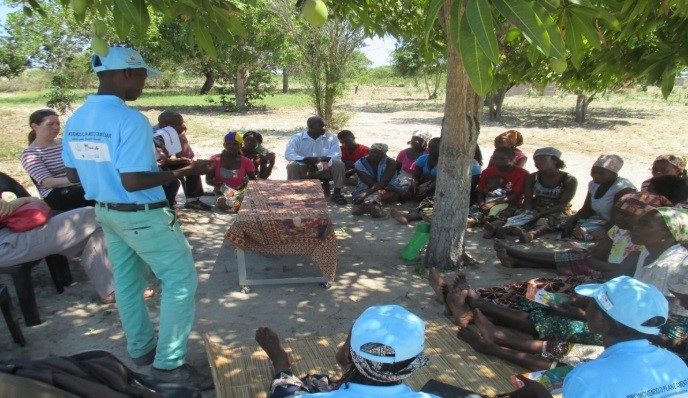
In November 2015, mobilisation activities began as part of the IQSCI project implemented by ICRH-M together with local health services, with the aim of increasing demand for modern contraceptives, particularly long-acting methods (LARCs), in the districts of Marracuene and Manhiça. The community mobilization activities are focused on raising awareness amongst men for increasing involvement in reproductive health issues particularly family planning; demystifying myths around modern contraceptions, providing clear information on the advantages and disadvantages for different methods; and providing information and advice for adolescents and young people. ICRH-M established partnerships with two community-based organisations, two community radios and a national organization that works with private sector employees. These partners implement a range of activities including radio programmes, community dialogues, work in schools and markets, placement of focal points in health facilities, door-to-door visits and mobile services. In Chiniesse community, the community mobilization activities have resulted in the creation of an adolescent-run theatre group which is presenting drama on family planning in their local schools and communicties. |
IQSCI Mozambique – new family planning studies in 2016 As part of the project “Building knowledge for improved quality of services and community involvement to increase use of family planning” (IQSCI), ICRH-Mozambique will carry out additional research in 2016. 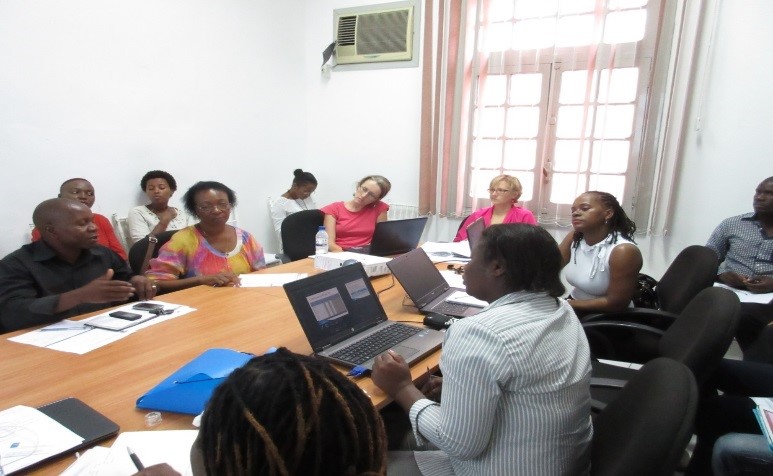 The proposed research was discussed and approved at the VI meeting of the project steering committee in March 2016. The first study will use mixed methods to focus on family planning needs and access to FP services by adolescents, and will be carried out not only in the IQSCI project sites (Maputo Province) but also Maputo city and Tete with complementary funding from other projects. A second study aims to understand motives for removal of long-acting reversible contraceptive methods through in-depth interviews with women identified through the IQSCI cohort study. Finally, qualitative methods will be used alongside the cohort study to better understand factors leading to or impeding changes in family planning knowledge, attitudes and practices. The proposed research was discussed and approved at the VI meeting of the project steering committee in March 2016. The first study will use mixed methods to focus on family planning needs and access to FP services by adolescents, and will be carried out not only in the IQSCI project sites (Maputo Province) but also Maputo city and Tete with complementary funding from other projects. A second study aims to understand motives for removal of long-acting reversible contraceptive methods through in-depth interviews with women identified through the IQSCI cohort study. Finally, qualitative methods will be used alongside the cohort study to better understand factors leading to or impeding changes in family planning knowledge, attitudes and practices.
For more information: Málica de Melo, m.demelo@icrhm.org.mz |
SH CAPAC workshop A new European project supports member states in ensuring effective healthcare for asylum seekers.
SH-CAPAC is a European project supporting European countries under pressure of large migration, in ensuring effective healthcare for re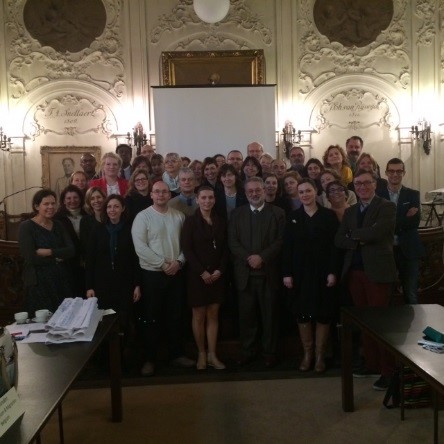 fugees, asylum seekers and other migrants. fugees, asylum seekers and other migrants.
Last year, more than 1 million refugees entered Europe. They often come from a violent, problematic environment and therefore have specific medical and psychological needs. The healthcare system in the different European countries is still not adapted to the needs of these new population groups. SH-CAPAC therefore supports the Member States by offering a series of coordination and support mechanisms for these specific challenges in health care.
The SH-CAPAC project launched in January 2016, responds to the growing concern for the right health care for refugees and asylum seekers.
19 European countries have already expressed their cooperation or interest. They will be supported by means of instruments coordinating health care, identifying the health needs of refugees and asylum-seekers, customising action plans and care pathways, teaching caregivers what culture-sensitive entails and also offering an online education concerning specific health problems related to the migration crisis.
This project is a collaboration between: Andalusian School of public health – EASP (Spain, coordinator), Azienda Unità Sanitaria Locale di Reggio Emilia (Italy), Trnava University in Trnava (Slovakia (Slovak Republic)), Jagiellonian University Medical College (Poland), International Centre for Reproductive Health/University of Ghent (Belgium), Academic Medical Centre/University of Amsterdam (Netherlands) and University of Copenhagen (Denmark).
The SH-CAPAC workshop in Ghent (23-24 February) united more than 11 countries, 7 consortium members and 9 international stakeholders. They discussed how to adjust the instruments as much as possible to the respective needs of newly arrived asylum seekers, those being in transit and the migrants settling in a country for a longer period of time as asylum seekers.
SH-CAPAC stands for ‘Supporting Health Coordination, Assessments, Planning Access to healthcare and Capacity building in member states under particular migratory pressure’.
More information: ines.keygnaert@ugent.be |
DIFFER ICRH-Mozambique exchange visit to Ashodaya Samithi, India. 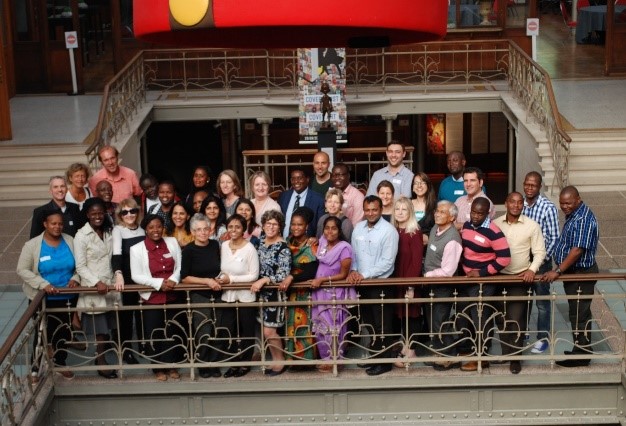
In March, ICRH-Mozambique led a visit to Mysore, India, hosted by the DIFFER partner Ashodaya Samithi. The objective of the visit was to share exchange experiences on good practices used by ICRH-M and Ashodaya Samith in providing SRH services for female sex workers. As well as the ICRH-M Tete provincial coordinator, three sex workers from Tete, Mozambique participated in the visit, as part of the DIFFER capacity-building component. To this end, Ashodaya organized a training event on the topic “From Science to Practice Sex Worker Led Process for SRH Interventions”. For ICRH-M, the mission served as a fundamental base to enhance and empower Mozambican sex workers. |
MOMI final meetings The final MOMI (Missed Opportunities in Maternal and Infant Health) project management team meeting and an international MOMI dissemination conference have taken place 21 and 22 January 2016 in Mombasa, Kenya.
The project management team meeting was attended by MOMI re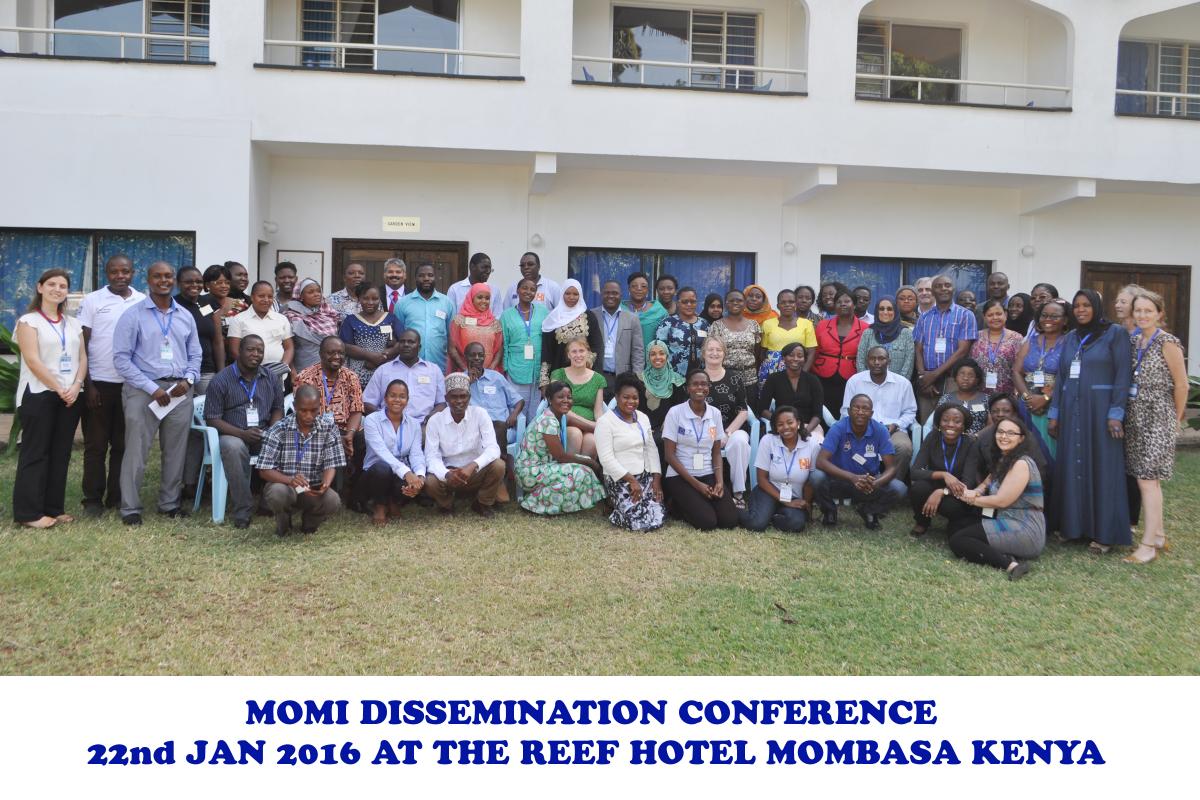 searchers from all the consortium partners. During this meeting MOMI end-evaluation results were presented and these results, country exit strategies and plans for dissemination were discussed. This meeting was followed by a one day international MOMI project dissemination conference which was attended by MOMI project researchers, stakeholders from each of the MOMI research sites (Ministry of Health staff), MOMI policy advisory board members, MOMI scientific advisory board members, facility health workers based at the MOMI health facilities in Kenya and Burkina Faso, and Kenyan medical school students. At this conference, the MOMI project approach, implementation, results and project challenges and opportunities were presented by the MOMI researchers and discussed with the present stakeholders. searchers from all the consortium partners. During this meeting MOMI end-evaluation results were presented and these results, country exit strategies and plans for dissemination were discussed. This meeting was followed by a one day international MOMI project dissemination conference which was attended by MOMI project researchers, stakeholders from each of the MOMI research sites (Ministry of Health staff), MOMI policy advisory board members, MOMI scientific advisory board members, facility health workers based at the MOMI health facilities in Kenya and Burkina Faso, and Kenyan medical school students. At this conference, the MOMI project approach, implementation, results and project challenges and opportunities were presented by the MOMI researchers and discussed with the present stakeholders. |
Well-being and safety of women in Brussels ICRH has been granted a study on well-being and safety of women, funded by the Brussels-Capital Region.
In this household survey we aim at interviewing 500 women resident in Brussels on a range of topics linked to safety and well-being. The results will be used to inform policy-makers and shape local policy-making. |
| EVENTS |
PhD Els Duysburgh On 11 March, ICRH researcher Els Duysburgh defended her PhD thesis ‘Quality of Maternal and Infant Care in sub-Saharan Africa: Challenges and Opportunities’. 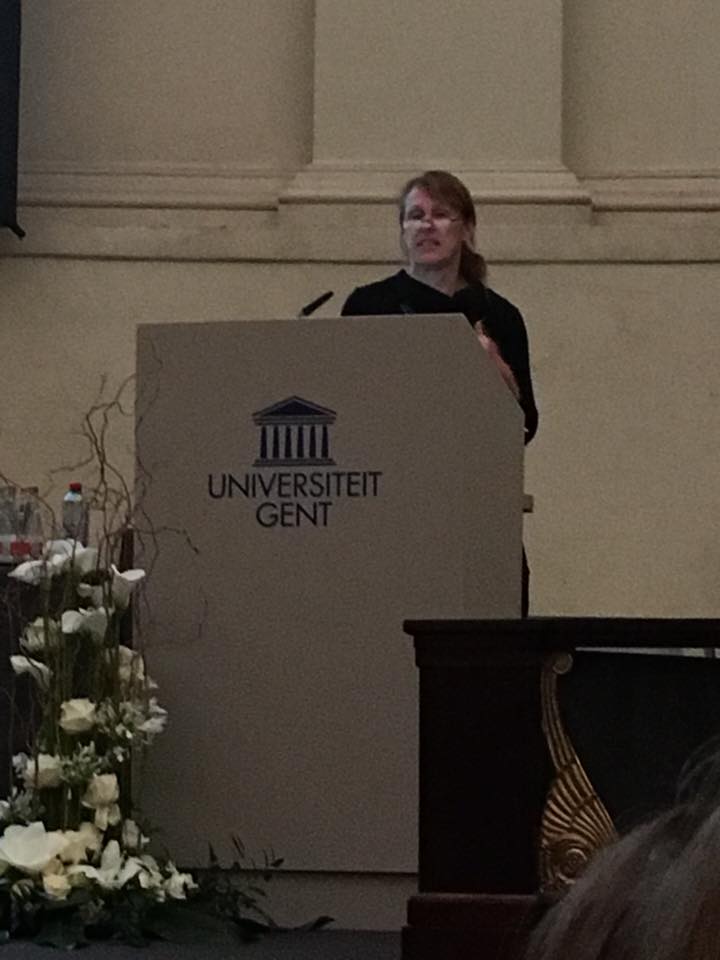
Her research focused on the need to improve quality of maternal and infant care, and was based on two projects: a study on quality of antenatal and childbirth care conducted in rural primary health care facilities in Burkina Faso, Ghana, and Tanzania; and a study on improving postpartum care conducted in rural districts in Burkina Faso, Kenya, Malawi, and Mozambique.
The antenatal and childbirth quality assessment study identified critical gaps in the quality of care that are remarkably similar between the study sites.
The study on improving postpartum care for mothers and infants showed that in all study countries maternal, new-born, and child health is a national priority, but specific policies for postpartum care are weak and there is very little evidence of effective postpartum care implementation. Els Duysburgh’s work made it clear that there is an urgent need in sub-Saharan Africa to upgrade the quality of antenatal, childbirth, and postpartum care, in order to reduce maternal and infant mortality and morbidity. Making quality an integral component of scaling up interventions to improve health outcomes of mothers and infants is of highest importance.
Els’ supervisors were prof. Marleen Temmerman (ICRH/UGent) and prof. Antje Blank (Universität Heidelberg, Germany).
The full text of the dissertation can be downloaded HERE. |
ICRH visit to Chinese embassy in Belgium 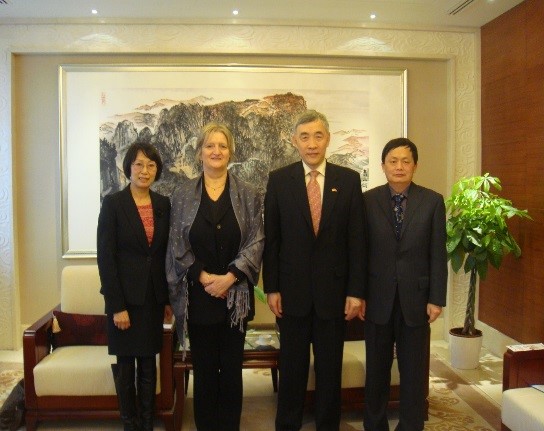 On 4 March, prof. Marleen Temmerman and ICRH senior researcher Wei-Hong Zhang were received at the Chinese embassy in Brussels. On 4 March, prof. Marleen Temmerman and ICRH senior researcher Wei-Hong Zhang were received at the Chinese embassy in Brussels.
During this visit, they met with the Chinese ambassador, H.E. Qu Xing and with counsellor She Long and second secretary for Science and Technology Affairs Wang Wang. Professor Temmerman presented ICRH’s activities in China since 2001, and more in particular the INPAC project that is led by ICRH, and expressed her wish to reinforce collaboration with China in the field of maternal and child health. Ambassador Qu Xing spoke highly of the positive efforts and contribution of ICRH for women’s and children’s health. The health of women and children is the premise and basis of sustainable development and the nation's future well-being. The ambassador expressed also from his side the hope to strengthen international cooperation in this area. A report of the meeting (in Chinese) can be found on the Embassy’s website: http://www.chinaembassy-org.be/chn/zxxx/t1347186.htm
|
Aga Khan University
On 1 and 2 March, a delegation from the Aga Khan University visited Gent University to explore collaboration options.
Prof. Dr. Robert Armstrong, Dean of the Faculty of Health Sciences of the Aga Khan University (AKU) in Nairobi, and prof. Dr. Marleen Temmerman, newly appointed Chair of the Department of Obstetrics & Gynaecology and Director of Women’s Health and Research at AKU, spent two intensive days in Gent. They met with many persons and departments that could be involved in collaboration between the two universities, including the Dean and the Vice-Deans of the Faculty of Medicine and Health Sciences, the departments of Family Medicine, Neurology, Obstetrics and Gynaecology, Infectuous Diseases, Social Medicine and Cardiology, the academic director of Internationization, and ICRH.
|
ICRH and social media ICRH invests in social media to raise awareness for our work in sexual reproductive health and to have people join the discussions on related topics. We invite you warmly to visit the ICRH Facebook, LinkedIn and Twitter and meet us online. Don't forget to share, like or comment! |
| ICRH PEOPLE |
Anny Yu Anny Yu joined the ICRH INPAC-team as a research assistant. 
Anny Yu holds a bachelor degree in Translation from the Chinese University of Hong Kong and a double master degree in Public Policy and Human Development with specialization on Social Protection Policy Design and Financing from United Nations University and Maastricht University. By constructing a multidimensional poverty assessment, her thesis explored horizontal inequality in the Occupied Palestinian Territories. After working at Maastricht Health Campus on EU-China public health cooperation, she continued with a technical internship at World Health Organization Office at the European Union in Brussels, focusing on health policies related to global health system and development aid. In January 2016, she joined the ICRH to assist the project coordination and management of the INPAC Project . More information: YipChing.Yu@UGent.be |
Chao Guo Staff exchange  between ICRH-Ghent University and Peking University. between ICRH-Ghent University and Peking University.
A PhD student from Peking University, Chao Guo is visiting ICRH as a part of the staff exchange project between ICRH and Peking University. Chao Guo is a PhD candidate in population health from the Institute of Population Research/WHO Collaborating Center on Reproductive Health and Population Science, Peking University. During January and February 2016, Chao Guo will perform activities related to the INPAC project, and also discuss the future cooperation between the two research teams. |
Ibraheem Ademola Adebayo On 1 March, Ibraheem embarked on ICRH’s postgraduate research internship programme.
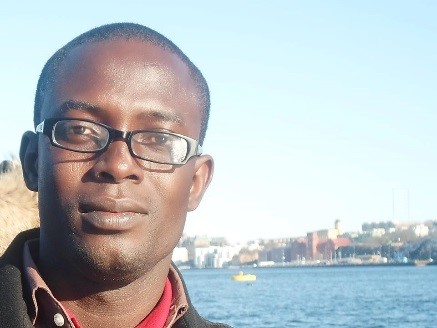 Ibraheem obtained a medical degree from Obafemi Awolowo University (Nigeria) in 2009 and obtained an MPH from the University of Leeds (UK) in 2014. As a medical student, he volunteered with the Clinton HIV/AIDS Initiative (CHAI) serving as program officer making HIV/AIDS services accessible to women and children in rural communities in Nigeria. He subsequently worked with the National Hospital Abuja as a House Medical Officer, and as Field Medical Research Officer with a research consortium in Nigeria comprising of Michigan State University and Guy’s and St Thomas Hospital London. He was involved in research projects on community acquired bacteremic diseases and new-born screening for sickle cell disease. He also worked with Health Maintenance Organizations (HMO) in Nigeria as Quality Assurance Manager coordinating accreditation, monitoring and evaluation of healthcare services in Nigeria. During his internship at ICRH, Ibraheem will concentrate among others on sexually transmitted infections and adolescents sexual and reproductive health. Ibraheem obtained a medical degree from Obafemi Awolowo University (Nigeria) in 2009 and obtained an MPH from the University of Leeds (UK) in 2014. As a medical student, he volunteered with the Clinton HIV/AIDS Initiative (CHAI) serving as program officer making HIV/AIDS services accessible to women and children in rural communities in Nigeria. He subsequently worked with the National Hospital Abuja as a House Medical Officer, and as Field Medical Research Officer with a research consortium in Nigeria comprising of Michigan State University and Guy’s and St Thomas Hospital London. He was involved in research projects on community acquired bacteremic diseases and new-born screening for sickle cell disease. He also worked with Health Maintenance Organizations (HMO) in Nigeria as Quality Assurance Manager coordinating accreditation, monitoring and evaluation of healthcare services in Nigeria. During his internship at ICRH, Ibraheem will concentrate among others on sexually transmitted infections and adolescents sexual and reproductive health. |
| PUBLICATIONS |
Reorienting adolescent sexual and reproductive health research Key messages of an ICRH conference on adolescent sexual and reproductive health (ASRH) and well-being.
A conference organised by ICRH on December 4th 2014, ICRH resulted in two key messages that can guide this research field into the next decade: 1) ASRH promotion is broadening on different levels and 2) this broadening has important implications for research and interventions. Adolescent sexuality has long been equated with risk and danger. However, throughout the presentations, it became clear that ASRH and related promotion efforts are broadening on different levels: from risk to well-being, from targeted and individual to comprehensive and structural, from knowledge transfer to innovative tools. However, indicators to measure adolescent sexuality that should accompany this broadening trend, are lacking. While public health related indicators (HIV/STIs, pregnancies) and their behavioral proxies (e.g. condom use, number of partners) are well developed and documented, there is a lack of consensus on indicators for the broader construct of adolescent sexuality, including sexual well-being and aspects of positive sexuality. Furthermore, the debate during the conference clearly indicated that experimental designs may not be the only appropriate study design to measure effectiveness of comprehensive, context-specific and long-term ASRH programmes, and that alternatives need to be identified and applied. Presenters at the conference clearly expressed the need to develop validated tools to measure different sub-constructs of adolescent sexuality and environmental factors. There was a plea to combine (quasi-)experimental effectiveness studies with evaluations of the development and implementation of ASRH promotion initiatives. Reorienting adolescent sexual and reproductive health research: reflections from an international conference. Michielsen K, De Meyer S, Ivanova O, Anderson R, Decat P, Herbiet C, Kabiru CW, Ketting E, Lees J, Moreau C, Tolman DL, Vanwesenbeeck I, Vega B, Verhetsel E, Chandra-Mouli V. Reorienting adolescent sexual and reproductive health research: reflections from an international conference. Reprod Health. 2016 Jan 13;13(1):3. doi: 10.1186/s12978-016-0117-0. |
Effects of HPV vaccination in Belgium. A surveillance study demonstrated the effectiveness of HPV vaccination in Belgian young women.
The SEHIB study included HPV geno-typing of ∼6000 continuous and 650 pathological cervical cell specimen as well as biopsies, collected from women in Belgium in 2010-2014. Data were linked to vaccination status. HPV vaccination appeared to offer protection among women aged <30years against infection with HPV16 and high-risk HPV. Vaccination protected also against cytological lesions. Vaccination protected against histologically confirmed lesions: significantly lower absolute risks of CIN1+ and CIN3+ associated with HPV16/18. Vaccine effectiveness decreased with age. Protection against HPV16 and 18 infection was significant in all age groups, however no protection was observed against cytological lesions associated with these types in age-group 25-29.The authors conclude that the SEHIB study demonstrates the effectiveness of HPV vaccination in Belgian young women in particular in age group 18-19. Declining effectiveness with increasing age may be explained by higher tendency of women already exposed to infection to get the vaccine. Arbyn M, Broeck DV, Benoy I, Bogers J, Depuydt C, Praet M, Sutter P, Hoorens A, Hauben E, Poppe W, Ranst MV, Delvenne P, Gofflot S, Pétein M, Engelen F, Vanneste A, Beeck LO, Damme PV, Temmerman M, Weyers S. Surveillance of effects of HPV vaccination in Belgium. Cancer Epidemiol. 2016 Feb 16. pii: S1877-7821(15)00289-1. doi: 10.1016/j.canep.2015.12.011. [Epub ahead of print] |
HIV testing among MSM in Kenya
A cross-sectional study on factors associated with HIV testing among men who have sex with men in Western Kenya: a cross-sectional study.
HIV diagnosis is an important step in the HIV cascade of prevention and treatment. However, men who have sex with men in low- and middle-income countries have limited access to HIV care services. We examined factors associated with prior HIV testing among men who have sex with men in western Kenya. 95 men were recruited who have sex with men aged 18 years and older, and who reported at least one sexual contact with a man in the past 6 months; however, this analysis is restricted to 89 participants who completed questions on HIV testing. Logistic regression model was used to determine factors associated with HIV testing in the past one year. Results indicate that 23 (26%) had not been tested in the past 12 months. Bivariate analyses demonstrated that condomless anal sex and comfort with healthcare providers were associated with higher odds of HIV testing in the past 12 months. Experiencing social stigma was associated with lower odds of HIV testing in the last 12 months. In multivariable models, social stigma remained significantly associated with lower odds of HIV testing in the last 12 months after inclusion of sexual risk and individual level variables. Development of men who have sex with men-sensitive HIV-testing services, addressing stigma, and training healthcare workers to provide culturally sensitive services may assist in effectively engaging men who have sex with men in the HIV treatment cascade.
Shangani S, Naanyu V, Mwangi A, Vermandere H, Mereish E, Obala A, Vanden Broeck D, Sidle J, Operario D. Factors associated with HIV testing among men who have sex with men in Western Kenya: a cross-sectional study. Int J STD AIDS. 2016 Mar 11. pii: 0956462416638967. [Epub ahead of print]
|
|
 ICRH Global Newsletter
ICRH Global Newsletter 



 The proposed research was discussed and approved at the VI meeting of the project steering committee in March 2016. The first study will use mixed methods to focus on family planning needs and access to FP services by adolescents, and will be carried out not only in the IQSCI project sites (Maputo Province) but also Maputo city and Tete with complementary funding from other projects. A second study aims to understand motives for removal of long-acting reversible contraceptive methods through in-depth interviews with women identified through the IQSCI cohort study. Finally, qualitative methods will be used alongside the cohort study to better understand factors leading to or impeding changes in family planning knowledge, attitudes and practices.
The proposed research was discussed and approved at the VI meeting of the project steering committee in March 2016. The first study will use mixed methods to focus on family planning needs and access to FP services by adolescents, and will be carried out not only in the IQSCI project sites (Maputo Province) but also Maputo city and Tete with complementary funding from other projects. A second study aims to understand motives for removal of long-acting reversible contraceptive methods through in-depth interviews with women identified through the IQSCI cohort study. Finally, qualitative methods will be used alongside the cohort study to better understand factors leading to or impeding changes in family planning knowledge, attitudes and practices. fugees, asylum seekers and other migrants.
fugees, asylum seekers and other migrants.
 searchers from all the consortium partners. During this meeting MOMI end-evaluation results were presented and these results, country exit strategies and plans for dissemination were discussed. This meeting was followed by a one day international MOMI project dissemination conference which was attended by MOMI project researchers, stakeholders from each of the MOMI research sites (Ministry of Health staff), MOMI policy advisory board members, MOMI scientific advisory board members, facility health workers based at the MOMI health facilities in Kenya and Burkina Faso, and Kenyan medical school students. At this conference, the MOMI project approach, implementation, results and project challenges and opportunities were presented by the MOMI researchers and discussed with the present stakeholders.
searchers from all the consortium partners. During this meeting MOMI end-evaluation results were presented and these results, country exit strategies and plans for dissemination were discussed. This meeting was followed by a one day international MOMI project dissemination conference which was attended by MOMI project researchers, stakeholders from each of the MOMI research sites (Ministry of Health staff), MOMI policy advisory board members, MOMI scientific advisory board members, facility health workers based at the MOMI health facilities in Kenya and Burkina Faso, and Kenyan medical school students. At this conference, the MOMI project approach, implementation, results and project challenges and opportunities were presented by the MOMI researchers and discussed with the present stakeholders.
 On 4 March, prof. Marleen Temmerman and ICRH senior researcher Wei-Hong Zhang were received at the Chinese embassy in Brussels.
On 4 March, prof. Marleen Temmerman and ICRH senior researcher Wei-Hong Zhang were received at the Chinese embassy in Brussels.
 between ICRH-Ghent University and Peking University.
between ICRH-Ghent University and Peking University.  Ibraheem obtained a medical degree from Obafemi Awolowo University (Nigeria) in 2009 and obtained an MPH from the University of Leeds (UK) in 2014. As a medical student, he volunteered with the Clinton HIV/AIDS Initiative (CHAI) serving as program officer making HIV/AIDS services accessible to women and children in rural communities in Nigeria. He subsequently worked with the National Hospital Abuja as a House Medical Officer, and as Field Medical Research Officer with a research consortium in Nigeria comprising of Michigan State University and Guy’s and St Thomas Hospital London. He was involved in research projects on community acquired bacteremic diseases and new-born screening for sickle cell disease. He also worked with Health Maintenance Organizations (HMO) in Nigeria as Quality Assurance Manager coordinating accreditation, monitoring and evaluation of healthcare services in Nigeria. During his internship at ICRH, Ibraheem will concentrate among others on sexually transmitted infections and adolescents sexual and reproductive health.
Ibraheem obtained a medical degree from Obafemi Awolowo University (Nigeria) in 2009 and obtained an MPH from the University of Leeds (UK) in 2014. As a medical student, he volunteered with the Clinton HIV/AIDS Initiative (CHAI) serving as program officer making HIV/AIDS services accessible to women and children in rural communities in Nigeria. He subsequently worked with the National Hospital Abuja as a House Medical Officer, and as Field Medical Research Officer with a research consortium in Nigeria comprising of Michigan State University and Guy’s and St Thomas Hospital London. He was involved in research projects on community acquired bacteremic diseases and new-born screening for sickle cell disease. He also worked with Health Maintenance Organizations (HMO) in Nigeria as Quality Assurance Manager coordinating accreditation, monitoring and evaluation of healthcare services in Nigeria. During his internship at ICRH, Ibraheem will concentrate among others on sexually transmitted infections and adolescents sexual and reproductive health.